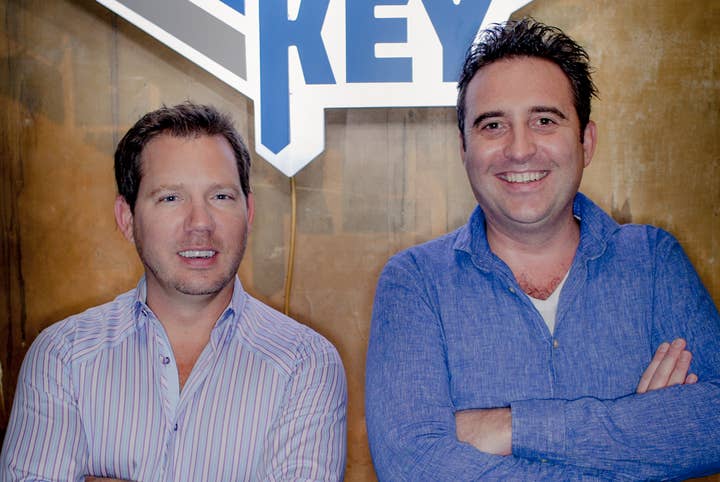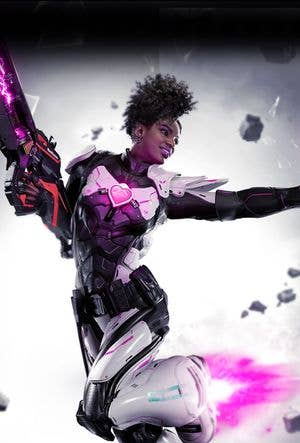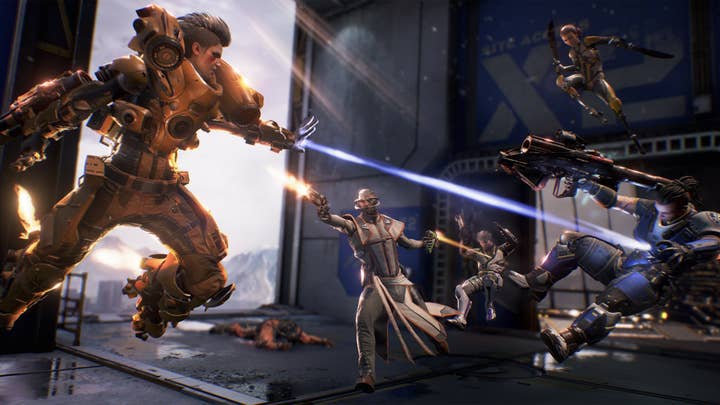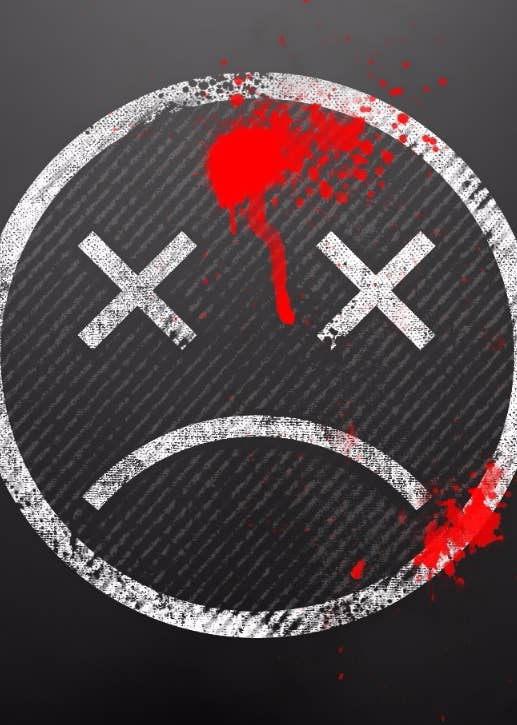What went wrong with Lawbreakers?
Boss Key's Cliff Bleszinski and Arjan Brussee reveal the various avenues they're exploring to recover from a rocky launch
Lawbreakers is not off to the best start.
Released in August, the frantic, gravity-bending multiplayer shooter is the debut title from Boss Key Productions - the studio formed in 2014 by Gears of War creator Cliff Bleszinski and Guerrilla Games co-founder Arjan Brussee.
With such talent behind the project, expectations were understandably high but while the game reviewed well enough, post-launch coverage was not quite as positive. "Launch numbers lower than Battleborn" is not a headline that would have been well received in the Boss Key halls - particularly as Battleborn has since seen all development support pulled and been left to die.
At the time, Bleszinski was insistent growing Lawbreakers was "a marathon not a sprint", citing the likes of Rocket League, Warframe and even the mighty Minecraft as world-conquering games that began with small communities. That determined optimism remains unchanged.
"As far as I'm concerned, the press can fuck off. We're going to keep making our game for our fans."
Cliff Bleszinski, Boss Key
"All I need to do is maintain enough CCU [concurrent users] to make sure that if you join, the matchmaking works decently enough and people get hooked enough, while also telegraphing every damn thing we're working on," Bleszinski tells GamesIndustry.biz.
It would be interesting to know what the Boss Key boys deem to be 'enough'. Shortly after our interview, the concurrent users dropped to as low as ten people - although Bleszinski' believes the media is particularly keen to highlight any apparent failures his game sustains. He points to a general pessimism when it comes to certain new releases: "It's not cool to root for things".
This, he reasons, explains the emphasis on the Battleborn comparison, despite the fact that Boss Key is aiming for a slow start.
"They're just looking for clicks, man," Bleszinski says of the games press. "They're just looking for ad revenue. We're going to keep doing what we're doing, and they're welcome to print whatever they want - but as far as I'm concerned, they can fuck off. We're going to keep making our game for our fans."
And so they have. Since launch, it has released at least two new maps and a new competitive mode calls Boss League - as well as the tweaks and fixes that are patched into any game these days - and still has a full roadmap of DLC in the works. The reason for this perseverance is to service the fans that Lawbreakers has managed to secure.
"Everyone who's played it loves it," says Bleszinski. "You look at the Steam reviews and we're damn near 90% positive.
"The thing is we don't have enough players yet. We have a small fledgling community that we're continuing to staunchly communicate with on a regular basis. We're being completely transparent about updates and patches, and we're continuing to scramble on the longer term things we have planned for the game."

Despite being co-founder of Boss Key, Arjan Brussee is rarely given the spotlight as most media vie for Bleszinski's attention. When asked for his stance on this troubled launch, he suggests the early adopters - few though they may be - might in fact be the game's salvation.
"If you have a lower number of users, there's more room for experimentation and really engaging with those people, growing it with them," he tells us. "It's a good sign that the users we have right now are really rabid fans and like what they see. They're defending the game on social networks, so they're really hardcore community members that will hopefully be the basis of growing the game further."
"We made such a hardcore game, we didn't spend enough time figuring out onboarding for new players - but that's something we can fix later"
Arjan Brussee, Boss Key
Bleszinski adds: "Players are so used to games coming out and being abandoned. If you can have that core group of fans that you continue to reward, that feel like they were early enough so that as you grow it they become almost these high priests that evangelise the game to other people - it's all part of that slow growth."
The trick is not only exciting those fans into such evangelism but also enticing intrigued newcomers. Already the firm has tried making Lawbreakers free for a weekend, which saw concurrent users rise to around 1,000 players, but realising the game's potential is going to take more than price promotions.
"That's where the service model comes into play: working out the inflection points where we can double or triple the number of users throughout the game's lifetime and hopefully keep them sticking around," explains Brussee. "That's what we're working on right now, figuring out how to plan and execute all our different options. Obvious things like free weekends [and] big content drops.
"When you look at these other games, you can actually see those inflection points when you look at the graphs. CS:GO's user numbers were pretty flat for almost two years, and the moment they started doing crates and trading, or when they started doing competitive esports for real, it took off.

"I'm not saying we have the solution yet, but those are the things we're looking at now to build it up over time."
Brussee describes esports as "the ultimate dream to achieve" but recognises that the basis of the game has to be honed first. Early tests of five vs five tournaments near the studio back in 2015 show that Lawbreakers can appeal to a competitive crowd but, upon reflection, Brussee wonders if making such a heavily skill-based game for such a group is slowing the growth rate.
"We made such a hardcore game, we didn't spend enough time figuring out onboarding and making it easier for new players - but that's something we can fix later," he admits. "Right now, it's a really hardcore game and the people who are good at it, you can see it really clicks for them so they keep on playing it."
Even without a skills barrier, it's difficult to onboard significant numbers of people with a title that is designed to grow over time. The eventual blossoming of titles like Driveclub and No Man's Sky has perhaps taught consumers to hold off for a year or so until a game has gained traction. So how do you convince players to jump in from the beginning and assist with that formative year?
"That's a question all Early Access games have," says Brussee. "We're not an Early Access game but sometimes we feel like one."
"The moment you start making stuff that looks AAA but doesn't have a 300-man team behind it, people are still expecting to have full cutscenes and more depth - but we can't provide that"
Arjan Brussee, Boss Key
He adds that the AAA nature of the studio's talent and the game's scope don't help: "It's hard. The moment you start making stuff that looks AAA but doesn't have a 300-man team behind it, people are still expecting to have full cutscenes and more depth - but we can't provide that. We're stuck in the middle: we either make something for Early Access that's super broken and looks mediocre at best, or we make something super polished but people miss the story or that kind of stuff."
While the foundations are there, the characters and story have yet to be fully explored in Lawbreakers - something Brussee acknowledges is "hurting us". Bleszinski agrees, adding that this even extends the the game marketing.
"To be frank, we made a mistake," he says. "We have our symbol of the upside down happy face, Deadzo. A lot of the marketing banner ads led with that, which is the symbol you see when you die in the game - it's kind of our version of the Gears of War crimson omen.
"When you don't know anything about the game and a banner shows up... Even the name Lawbreakers, if you don't know about the gravity-defying thing, you're like 'what is this?'. Basically if you look at that symbol outside of context, it says you're going to have a bad time. We have a lot of really great characters - Sunshine the Harrier is as tough as she is loveable, so we're going to be leading with her a lot more going forward so people will know who they're going to get attached to."

Naturally in this day and age of social media, there are plenty of Twitter users who claim to know exactly where Boss Key went wrong and how Lawbreakers can be rescued, but their solutions are a little less practical.
"You'd be surprised how your average fanboy thinks with their heart and can't wrap their head around business decisions. Yes, games are art but they're also commercial art"
Cliff Bleszinski, Boss Key
"There's a dedicated Xbox fanbase convinced I hate them for some reason," says Bleszinski. "They can't wrap their head around the fact that it was a surgical business decision of us looking at an installed base of Xbox One versus PS4 and we just needed to hedge our bets on the larger installed base. So there are these weird Xbox fansites that are like, 'see, you should have been on Xbox' and I'm like 'dude, give it time'. I'd love nothing more than to start porting the game tomorrow.
He continues: "You'd be surprised how your average fanboy thinks with their heart and can't wrap their head around business decisions. They can't understand that I have 65 employees here that have families to support and health insurance to pay. There are legal fees, we have to keep the lights on - there's a lot that goes into business because yes, games are art but they're also commercial art. It's amazing the amount of people that tweet me saying I should make a new Gears game, or a new Jazz Jackrabbit."
It would be easy to argue much of the disappointment Lawbreakers has evoked stems from Bleszinski's reputation and - given his own admission that "I've always been polarising" - his frank nature when it comes to responding to criticism. But the veteran developer is convinced his name doesn't carry the weight that people might think.
"If you take your average 16-year-old CS:GO or Overwatch player, they don't know who the fuck I am, they don't care," he says. "The people who know me are like 30 to 40. Your average 25-year-old doesn't know. They're more excited about pro gamers, YouTubers or Twitch streamers."

It's the latter that Boss Key hopes to get on side to help spread the word about Lawbreakers. Brussee even confirms that the game and its mechanics were designed as much with Twitch viewers in mind than active players.
"It's been a goal for us to build something that's inherently watchable," he says. "Sometimes that's hard to do with shooters. The difference is when you watch soccer or basketball, you don't watch it through the eyes of the player - that would be terrible, you wouldn't have the overview of the field. That's why we invested in making things like the spectator camera.
"Another thing is that sports work so well because there's always this 'hot potato' being tossed around, like a ball, and you can focus the action around that to make for easier viewing. I saw similar things when working on Battlefield with those diffuse-the-bomb type game modes, because they spectate better and it's easier to understand what's happening rather than having skirmishes all over the map.
"We've been designing modes that have focal points, but also have drama in them that is exciting to watch and shoutcast. We're in a new age where that kind of stuff is important."
It's worth remembering that Lawbreakers, while important, isn't essential to Boss Key's survival. The studio is already pondering ideas for future projects - Bleszinski is particularly keen to explore the possibilities of a premium VR game - because as the former Gears developer says: "It's basic business strategy: you don't put your eggs in one basket."
Nonetheless, the Boss Key boss remains convinced that there is space in the market for Lawbreakers, which is why his team continue to plug away at accomplishing what they originally set out to do.
"When it comes to character-based shooters, I've always said there's room for three, maybe four and I'm hoping we can start beginning to crack into that space," Bleszinski concludes. "I want to carve out my space and be Pepsi or RC Cola of that market - I'm not going to be Coke because Overwatch has too much of a stranglehold."
